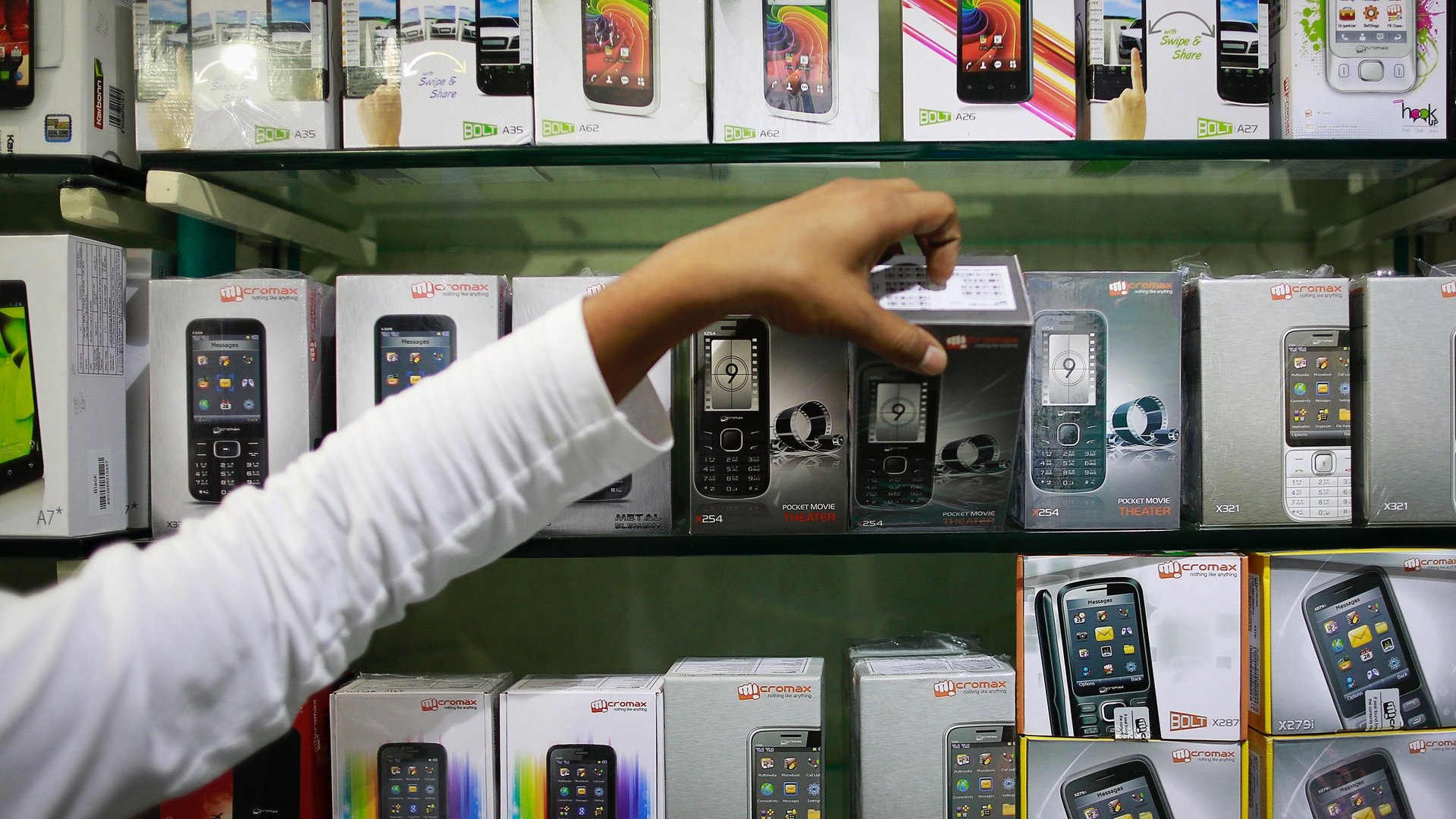As India’s startup founders rally for protectionism, Uber ties up with country’s largest domestic phone maker
Uber is partnering with India’s biggest homegrown smartphone maker in a bid to woo millions of Indians into using its ride-hailing service.


Uber is partnering with India’s biggest homegrown smartphone maker in a bid to woo millions of Indians into using its ride-hailing service.
On Dec. 20, the US-headquartered company announced an exclusive partnership with Gurgaon, India-based Micromax. Over the next three years, the two companies will work to create a “unique on-device native experience” for Micromax’s 100 million users.
While Uber’s app is free to download on all iOS and Android devices, many Indian smartphone users don’t want to incur the heavy data usage associated with it—so Uber is still not widely adopted in the country. The Silicon Valley company has also failed to gain traction in the face of stiff competition from domestic rival Ola, which has nearly twice as many cars on the road in India. The conviction of an Uber driver in a rape case in Delhi didn’t help, either. Uber currently operates in 29 Indian cities while Ola offers its services in over 100 cities.
By partnering with Micromax, Uber hopes to reach a less well-off segment of the Indian market that is usually conservative with their data spend and would likely not download and use the company’s standalone app. One of Micromax’s key features is Around, a single discovery window that aggregates information from different apps across various categories like food, shopping, ground transit and air travel, so users don’t have to download and browse multiple apps. By connecting an Uber account to the Around platform, users will be able to view estimated arrival time and fares as well as book a ride without downloading the Uber app itself.
Micromax has seen its market share slipping amid mounting competition from local rivals like Intex and Lava, as well as newer Chinese entrants to India’s low- and mid-range device markets, like Oppo, Vivo, and Gionee. Despite the downslide, the local leader could give Uber a boost in the price-sensitive Indian market. The bulk of Micromax’s devices cost between Rs3,000 to Rs9,000 ($45 to $132)—comfortably below the $158 average smartphone price in India.
The partnership will also help Uber reach a new segment of the public: Micromax’s regional language-enabled devices tap into a market beyond the 125 million English speakers in a country of 1.3 billion people, speaking over 20 different languages.
South Korean tech giant Samsung is a favorite among Indians because it has penetrated the entire market—it produces devices on the lowest end of the price spectrum and also offers high-end models. But most of Samsung’s success comes from its premium devices.
Uber’s move comes during a burgeoning movement in India to shut out foreign tech firms. Indian companies like Flipkart and Ola recently called for protectionist policies that would, they believe, help domestic firms thrive. Uber head Travis Kalanick has said that his company has no intentions of merging with any Indian firm, like it did with Chinese rival Didi Chuxing in the latter’s home country. But by creating an exclusive relationship with a domestic firm in India, Uber is trying to make itself seem like less of an outsider in its second-largest market.
“The only way to compete is you have to become local yourself,” Kalanick said in an interview with Amitabh Kant, who heads up the National Institute for Transforming India. “We were always local from the beginning—but when we went to India and China we just had to take it to the next level.”
Uber has other strategies to make inroads in India. For example, the company now accepts cash as well as payments through third-party apps like Paytm and Airtel Money in many Indian cities. Compared to places like the US where using cards is the norm, 40% of India’s population is unbanked. And since feature phones—which can access the internet and store and play music, for example, but don’t offer advanced functionality—are still twice as prevalent as smartphones in India, Uber recently also started allowing users to visit dial.uber.com to book a ride, without creating an account. They just need a phone number for verification and can pay in cash.
After Uber introduced dial.uber.com, rival Ola retaliated with a “Book via SMS” feature that allows users to be completely offline and book rides through text messages. Your move, Uber.